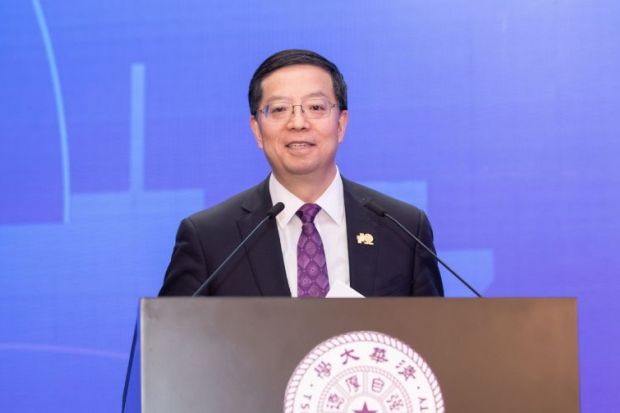More than 300 participants in the Global Forum of University Presidents pledged in a “Tsinghua Consensus” to “accelerate the development of higher education by fostering greater openness, integration and resilience in our institutions”, particularly by promoting social responsibility in “globally chaotic environments”.
“Covid-19 has only added to a long list of severely disruptive global challenges, like climate change, social inequality, and the threat to international collaboration and exchange,” Qiu Yong, Tsinghua University’s president, said at the forum held to mark the institution’s 110th anniversary. “Through this test, we now understand the effort needed to overcome threats of this magnitude. We have proven that even closer collaboration will be needed to overcome future challenges.
“Higher education is facing profound challenges that unite now in a different way,” he added. “We face global health, access, and mobility challenges, which have required us to find global solutions.”
Chen Xu, chair of Tsinghua’s council, said it was “our hope that further action through scientific research, talent cultivation, campus action, student activities, and public engagement will lead to a carbon-neutral world”.
University heads attending from around the world discussed how they were working towards the United Nations’ sustainable development goals.
Rocky Tuan, president of the Chinese University of Hong Kong, said that “when it comes to success, it’s all about people, people, people. At the end of the day, if we want to achieve anything, particularly with the SDGs, we have to work on people first.”
Gene Block, chancellor of the University of California, Los Angeles, also emphasised the need for these goals to be reflected in everyday campus life and teaching. He called critical thinking “essential for all of our graduates who are going to successfully navigate and contribute to a world ripe with complex global challenges”.
He cited three types of literacy – scientific, information and global – as key.
Santa Ono, president of the University of British Columbia, said that institutions must respond “boldly and decisively” to problems like climate change by creating carbon-neutral universities and communities. He added that UBC had set a pathway to net zero emissions by 2050.
Other participating universities also laid out their deadlines for becoming zero carbon or carbon neutral: Hokkaido University by 2050, the Polytechnic University of Turin by 2040, and the University of Sheffield by 2038.
Koen Lamberts, Sheffield’s vice-chancellor, called his institution’s strategy “holistic”.
“It looks at environmental issues, but also at social and economic factors, which are equally relevant in forming solutions,” he said.
Li Zheng, executive vice-president of Tsinghua’s Institute of Climate Change and Sustainable Development and secretary-general of the Global Alliance of Universities on Climate, called sustainability “a common crisis and longstanding challenge faced by humanity, requiring everyone around the world to unite, learn together, and place all efforts to create a climate-focused governance”.
Register to continue
Why register?
- Registration is free and only takes a moment
- Once registered, you can read 3 articles a month
- Sign up for our newsletter
Subscribe
Or subscribe for unlimited access to:
- Unlimited access to news, views, insights & reviews
- Digital editions
- Digital access to THE’s university and college rankings analysis
Already registered or a current subscriber? Login












